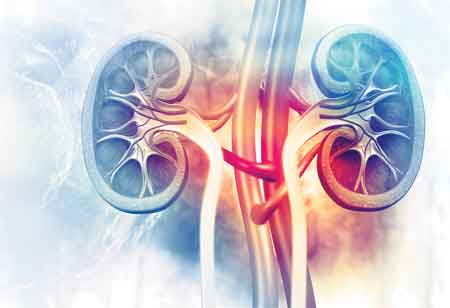Thank you for Subscribing to Healthcare Business Review Weekly Brief

Case Study Of Applied Informaticsin Nephrology Practice
Healthcare Business Review
When asked to contribute my thoughts to this magazine issue this particular subject came immediately to the forefront.
It is imminently apparent to any practicing nephrologist that the world of a patient with advancing chronic kidney disease is a communication challenge of such magnitude that it cannot be bridged by any one single individual no matter how much good intent and knowledge it may possess.
The need to involve providers of care who work in silos and communicate in colloquial language and to pass essential information singular to any given patient to different digital platforms residing on different servers protected by encryption and firewalls is the call for action here.
Typically this would start at the level of the clinic or nephrology offices who attempt to retrieve as much pertinent data from hospitals and primary care offices as well as other specialists involved on that individual care as they can.
It progresses to a multidisciplinary level of care which is essential for a good outcome and clearly benefits patients. In order of need it would include a dietician, a nurse educator and later a social worker with introduction to transplantation centers in distinct networks more often than not. Ultimately a dialysis provider for either home or in center care.
Naturally in the course of those events other specialists will be required which by the nature of the disease and prevalence of illnesses in our population will include: cardiology, endocrinology, infectious disease experts, vascular surgeons, general surgeons and interventional radiologists.
For a large number of patients transplantation cannot be achieved so as to remain on dialysis for years and as a result acquiring a whole new set of medical and surgical needs frequently requiring the services of gastroenterologists, pulmonologists, rheumatologists, neurologists and mental health professionals as well as palliative care specialists.
As I have witnessed myself in my now 40 years of practice, I still have some original patients who lived with ESKD from yearly adulthood and have experienced multiple transplants and periods on dialysis with numerous hospitalizations and from that perspective one can see where the true solution lies.
It does not escape observation that current digital health records have all migrated to a patient centric platform which fits with the above construct.
It gives me tremendous pleasure and hope to see how the field has moved rapidly to patient centric and as portable and interfaceable as possible
It is also perceived by regulatory agencies and consumer representatives demands that the information be available to the client who would then decide how and with who to share it with.
This is in stark contrast with the colloquial language of insular health care particularly found in small dialysis clinics, isolated doctors’ offices and clinics.
Open notes are now the law of the land and as such speak loudly to the need of patient involvement in the documentation of their own maladies as perceived by them with factual data that they may recall better than any provider so as to scrub the records from their perspective as we do it from ours.
Solving for all of those needs and requirements is a slow and tedious process. Truth be told, the road has been full of dead-end traps and tainted by vendor competition at the loss of common gains to earn exclusivity. This was the state of affairs in the early part of this century.
It gives me tremendous pleasure and hope to see how the field has moved rapidly to patient centric and as portable and interfaceable as possible.
It is incumbent on the ones who have been at this from start to create such systems with the knowledge of the provider world and regulatory safeguards rather than delegating this to applications on portable device developers or insurance or pharmaceutical providers.
It is leveraging the most critical experiences that reside in the minds of patients and their caretakers that we will ultimately succeed in this vital quest for our future generations and we owe them no less.









